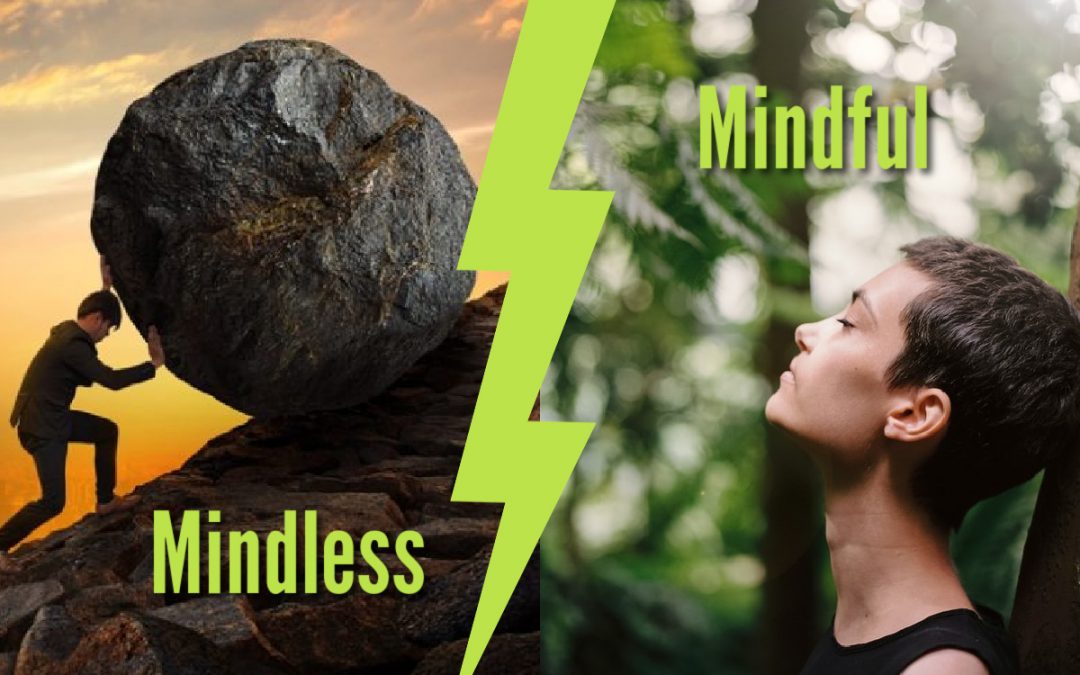What does mindlessness vs mindfulness look like? Let’s discover how they differ from each other.
Most people go through life mindlessly, which means that they are on autopilot for much of the time. When they live in this way they tend to be reactionary, which in turn means that they’re not in control of their lives. Instead, their pre-programmed responses are in the control seat instead.
When a person lives mindlessly they:
✦ Frequently get caught up in their automatic response without stopping to reflect if there is a better way to do something
✦ Are careless because their attention is often in two places at once and they are distracted
✦ Ignore or don’t even notice the clues that their body is giving them about when to take a break, or time out until their body gets sick or breaks down in some other way.
✦ Don’t notice just how stressed they are, or that even when there is no stress in their lives, they create more by taking on something new. This is because many people feel that stressed is their natural way of being.
✦ Become so focused on achieving a goal that they don’t take time out to reflect if achieving that goal will make them happy. Or even whether they really want it.
✦ Forget people’s names when they are introduced.
✦ Don’t remember things for longer than a few minutes.
✦ Multitask
✦ Are constantly preoccupied
✦ Eat without being aware of the taste of what they are eating
✦ Drive on autopilot so that they are not aware of their surroundings until they reach their destination
✦ Daydream excessively.
✦ Use work, food, alcohol or Netflix as a distraction.
✦ React without thinking
When a person lives mindfully they:
✦ Live consciously by paying attention to the present moment.
✦ Make conscious choices, reflect often, pay attention and experience less stress.
✦ Make fewer judgments.
✦ Have a better memory.
✦ Feel their emotions in the moment.
✦ Live purposefully.
✦ Don’t react impulsively
✦ Are happier more of the time.
Paying attention mindfully is not about detaching from your experience and failing to emotionally engage with your life. It does not cause apathy. It does not kill passion.
In fact, mindfulness allows you to engage more fully with your emotions and other experiences, rather than simply reacting to them with habitual patterns of avoidance or acting out.

